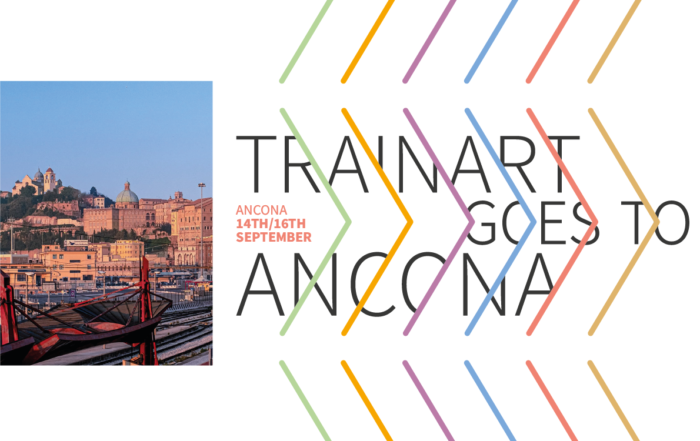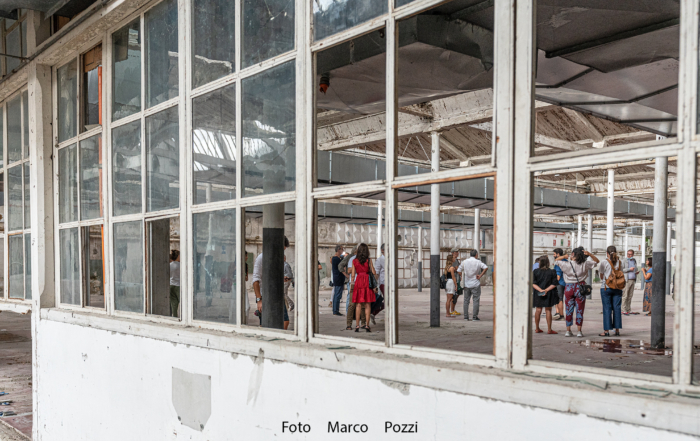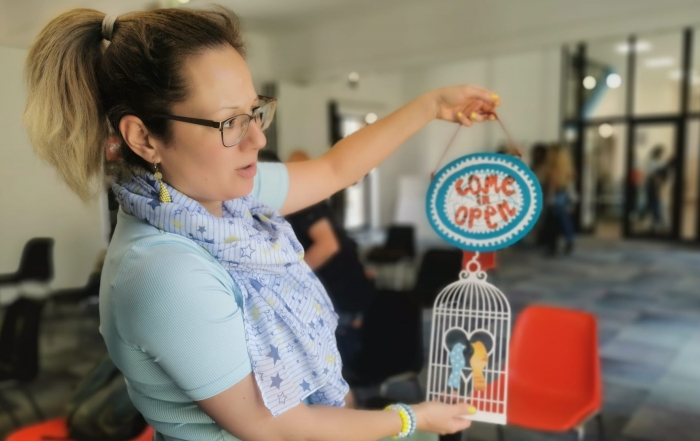TRAINART aims at strengthening the competitiveness of the European Performing Arts sector and shaping new skills for cultural operators interested in developing innovative business models in the Cultural and Creative Industries.
TRAINART aims at strengthening the competitiveness of the European Performing Arts sector and shaping new skills for cultural operators interested in developing innovative business models in the Cultural and Creative Industries.
News
Ancona, the last field visit: out and about with the arts in Le Marche
After three memorable field visits in Bilbao, Novi Sad and Gothenburg, TrainArt landed in Ancona for one last stop. Three days dedicated to the exploration of cultural and artistic practices around Le Marche, also known [...]
Audience Development and Cultural Regeneration of Spaces: Italy’s Field A Pilot Projects
As we are approaching the end of our beloved project, the pilot actions developed by the beneficiaries are adding up. At this point, all the new projects sparked from the training programme are out there [...]
TRAINART enters the business world: the AIO project from Serbia
Artistic interventions in non-conventional places keep rising everywhere around the partner countries. From Serbia, Field B's pilot action on the topic of AIO (Artistic Interventions in Organizations) - developed by Irena Čučković, journalist, freelance photographer [...]
Specific objectives
TRAINART aims to give new skills to cultural operators/artists by focusing on two particular fields: management models of cultural spaces and artistic interventions in non-conventional contexts.
A
New management models
for cultural spaces
B
Artistic interventions
in non-conventional contexts
Activities
Transnational capacity
building programme
The main findings of the analysis will be exploited to prepare the training programmes and the learning outcomes to be achieved through the training and the feasibility analysis for pilot activities. The selected participants will thus benefit from a full mobility schemes to foster knowledge and to learn from peers at European level on how to effectively implement innovative business models in the creative sector. The beneficiaries will attend 60 training hours provided through MOOCs (Massive Open Online Courses) to acquire and/or foster basic skills in management, marketing and finance. Then they will access 60 hours of non-formal and peer-to-peer training, organized in different “training hotspots” (20 training hours each) for the two areas of intervention A (in Ireland, Spain and Italy) and B (in Sweden, Serbia and Italy).
Skills gap
analysis
In order to best calibrate the subsequent activities of the project, the partners will carry out an effective assessment on the professional skills required in the cultural and creative sector of partner’s territories, with specific reference to the fields addressed by the project. The purpose of the analysis is to investigate the needs and the constraints of the cultural operators in developing more sustainable practices and improving their economic performances. At the end of this phase, a pilot group of cultural operators coming from Italy, Spain, Serbia and Sweden to participate in the capacity building programme.
Implementation
of pilot actions
Coordinated by the project partners, the beneficiaries will have the opportunity to test the skills acquired, experimenting with new business models and new artistic interventions aimed at public or private organizations. The pilot actions will be implemented in Italy, Sweden, Serbia and Spain. Possible examples of pilot actions (not exhaustive): 1) implementation of new services within traditional cultural spaces; 2) promote a more participatory governance of a space, which will stimulate the inclusion of the local community and its participation in the proposed cultural activities; 3) identification and implementation of innovative public development practices; 4) development of an artistic intervention adapted to the need of a private organization operating in a traditional economic sector; 5) development of artistic interventions to favor the socio-economic development of a neighborhood within urban regeneration projects.



